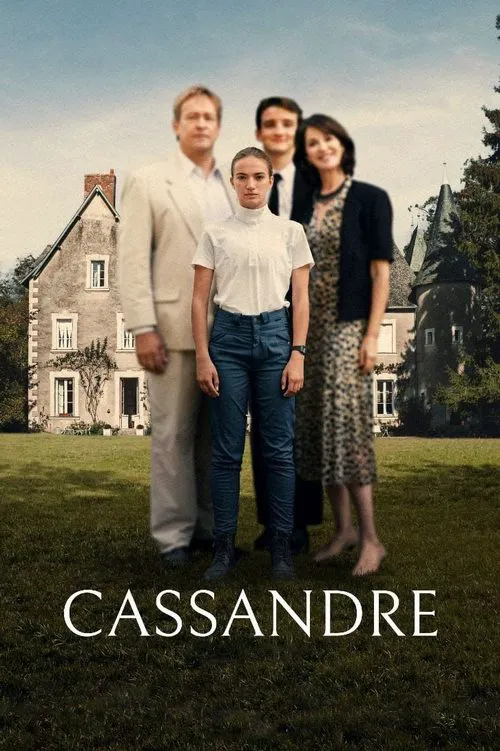Cassandre

Handlung
Cassandre is a 1998 French coming-of-age drama film directed by Alexander Herzog. The story follows the journey of 14-year-old Cassandre as she navigates the complexities of adolescence, including the onset of puberty. Set in a rural French landscape during the sweltering summer of 1998, the film begins to explore Cassandre's newfound physical changes. Her parents and older brother are the first to notice that something is different about her. They struggle to understand and communicate with their daughter, caught off guard by the sudden transformations taking place within her. The film masterfully captures the awkwardness and uncertainty that often accompanies puberty in young girls. Cassandre is portrayed as an introverted and reserved teenager, who is desperate to maintain her childhood innocence amidst the growing pains of adolescence. She feels increasingly disconnected from her family, who seem to be grappling with their own understanding of her changing body. As Cassandre's relationships with her family become strained, she begins to withdraw into herself. She starts to develop a sense of isolation, feeling that she is no longer understood or accepted by her loved ones. Her older brother, who had once been her confidant, now finds himself struggling to relate to Cassandre's new body and her emerging emotions. One of the central themes of the film is the struggle for Cassandre to find her place within a family that is increasingly out of touch with her. Her parents, though well-intentioned, find themselves grappling with their own insecurities and misunderstandings about their daughter's transition to womanhood. They make awkward attempts to reassure Cassandre that everything will be okay, but their efforts often fall short and come across as insensitive. In contrast, Cassandre's interactions with her brother are far more nuanced and authentic. There is a deep-seated understanding and affection between them, making their subsequent disconnection all the more poignant. The film highlights the difficulties of sibling relationships when family dynamics change, and the challenges that arise when young people struggle to find their identity. The film's direction is marked by a subtle yet affecting use of cinematography and sound design. The rolling countryside landscapes and searing summer sun create a sense of claustrophobia, underscoring Cassandre's feelings of isolation and disconnection. The camera work is often observational and intimate, capturing the raw emotions that Cassandre is experiencing as she navigates her physical and emotional transformation. The performance of the actress playing Cassandre is a standout aspect of the film. She brings a depth and vulnerability to the character, conveying the complexity of emotions that accompany adolescence. Her portrayal of Cassandre is both heartbreaking and relatable, making the viewer feel invested in her journey. Furthermore, the film raises important questions about the cultural and social pressures placed on young women during puberty. Cassandre is confronted with societal expectations around her body and her behavior, which are both unrealistic and alienating. The film suggests that these pressures can contribute to feelings of anxiety, isolation, and disconnection in young women. Ultimately, Cassandre is a powerful and poignant exploration of adolescence, family dynamics, and the complexities of growing up. The film provides a nuanced and empathetic portrayal of a young girl's journey towards womanhood, shedding light on the challenges and struggles that many young women face during this difficult period.
Kritiken
Empfehlungen



